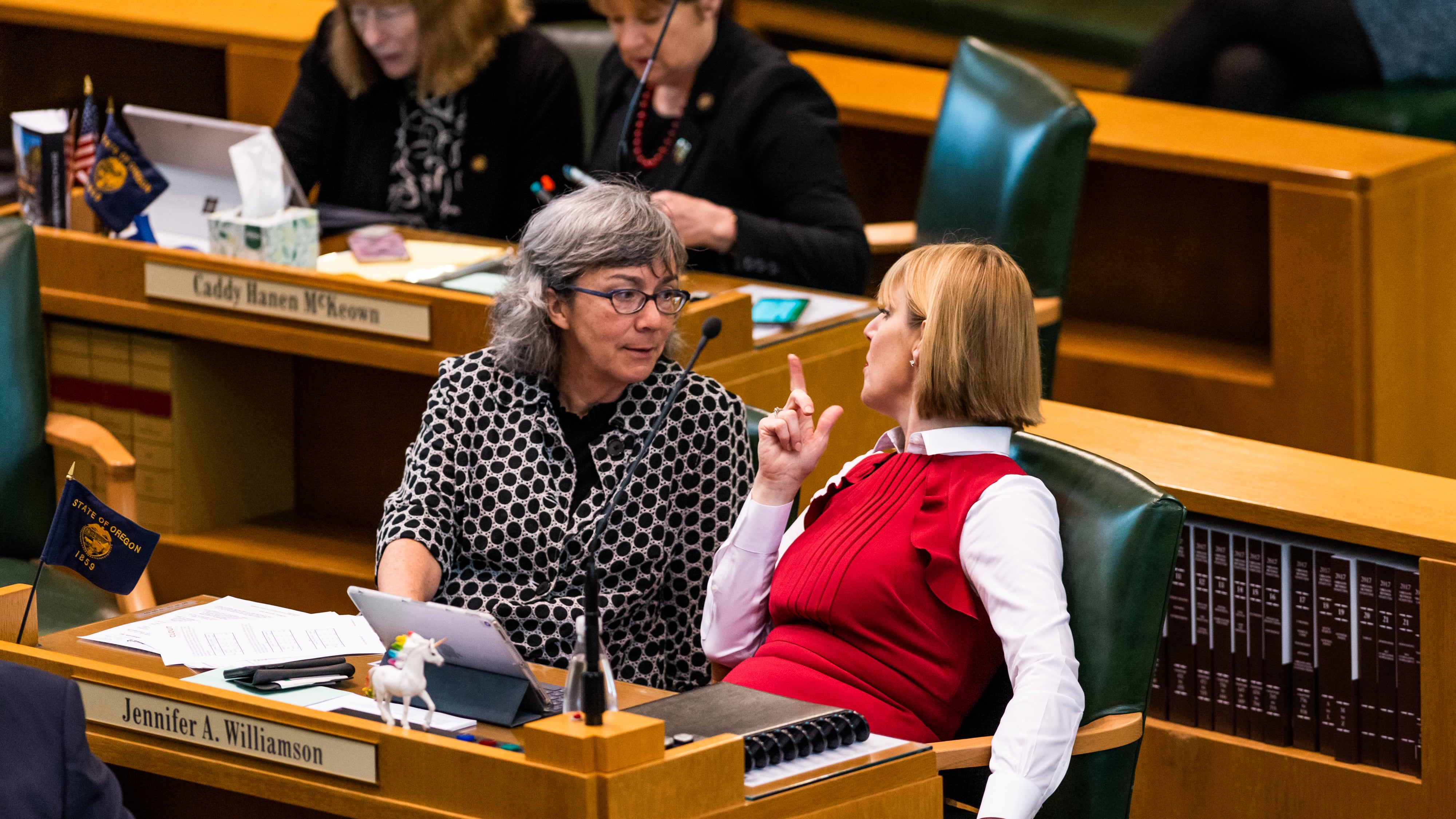The Oregon House this afternoon passed Senate Bill 1049, a modest reduction in the cost of contributions to the Public Employee Retirement System, in a dramatic and chaotic afternoon that required two votes.
On its first vote, the bill failed by a 31-29 margin. That failure was a somewhat surprising result, as the bill is sponsored by House Speaker Tina Kotek (D-Portland) and Senate President Peter Courtney (D-Salem) and the Senate earlier passed the bill by a 16 to 12 margin.
Although public employee unions and their allies throughout organized labor strongly opposed the bill, it was been positioned as bargaining chip to convince centrist lawmakers to support House Bill 3427, a major corporate tax increase that passed earlier this session. Business groups and some lawmakers opposed passing the new tax, which is aimed at increasing funding for early childhood education and K-12 schools, with also reducing the escalating payments schools and other public employers are making to cover pension costs.
Related: Business groups file paperwork to begin the referral of newly-passed billion-dollar tax increase.
Kotek held the vote open after the initial failure, however, and began impromptu private consultations with members who might be convinced to change their votes.
After about 30 minutes, Kotek re-opened the vote and state Reps. Mitch Greenlick (D-Portland) and Andrea Salinas (D-Lake Oswego), changed their votes from "no," to "yes," giving the measure the bare minimum of 31 votes it needed to pass.
Labor leaders slammed the move.
"When the economy was struggling, public workers accepted cuts, furloughs, and freezes," said Service Employees International Union Local 503 Executive Director Melissa Unger in a statement. "We have worked together with the state in good faith towards the shared goal of a better Oregon for all. Today's vote to cut workers' retirement again does not represent us working to shared goals and it is a step backwards for our state. The fight is far from over, we remain united in our fight for good jobs and quality benefits."
House Republicans all voted against the bill.
"The outcome of today's vote will make it tougher on public employees without benefitting all Oregonians," said House Republican Leader Carl Wilson (R-Grants Pass). "Refinancing the PERS debt will only add to the growing debacle. Republicans seek an effective solution that won't be settled on the backs of public employees."
Wilson is referring to the primary driver of cost-savings in the measure: extending the period over which employers must pay down the PERS system's unfunded liability, without increasing payments. That extension of time adds risk to the overall system because it increases the likelihood that the $90 billion investment portfolio used to make some of the PERS payments will suffer a market downtown.
The good news for public employees from today: Gov. Kate Brown says she won't ask for more from them.
"The governor expected significant action to stabilize PERS rates this session under a model of shared responsibility, and with this legislation, PERS rates will be reduced through contributions from employers, the state general fund, the lottery, and public employees," said Brown's spokeswoman, Kate Kondayen. "Going forward, Governor Brown will not look to public employees for further contributions. She will continue working to further decrease the unfunded actuarial liability via other sources."
The bill now moves to Brown's desk for signature.

